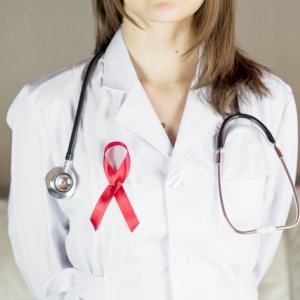
COVID-19 Vaccine Approval Within Months
 By Miriam Bello | Senior Journalist and Industry Analyst -
Wed, 12/02/2020 - 12:43
By Miriam Bello | Senior Journalist and Industry Analyst -
Wed, 12/02/2020 - 12:43
In the picture: Scientists Ugur Sahin and Özlem Türeci, CEO and chief medical officer of BioNTech, the company that created the vaccine in partnership with Pfizer.
An early Christmas present was delivered this morning with the UK’S announcement regarding the emergency approval for Pfizer and BioNTech’s COVID-19 vaccine. The Medicines & Healthcare Products Regulatory Agency (MHRA) granted this permission, which gave green light for both companies to begin the immediate distribution of the first doses. Through a previous agreement, the UK had signed a total of 40 million doses to be delivered between 2020 and 2021. To begin with, 800,000 doses will be distributed in the incoming days to begin mass vaccination.
“First authorization for a COVID-19 vaccine represents a breakthrough scientific achievement to help combat this devastating pandemic,” said Pfizer in a statement.
What Were the Bases for the Approval?
Results from Phase 3 clinical trials on the vaccine BNT162b2 showed a 95 percent effectiveness in participants without prior SARS-CoV-2 infection, which was the first primary objective, and also in participants with a prior SARS-CoV-2 infection, which was the second primary objective. Each case was monitored for infection after seven days following the second dose. Efficacy was consistent across age, gender, race and ethnicity demographics, with an observed efficacy in adults aged 65 years and over of more than 94 percent. “BNT162b2 was generally well tolerated with no serious safety concerns reported by the Data Monitoring Committee to date,” reported Pfizer. This same development is expecting approvals from FDA, EMA and COFEPRIS to be resolved this month.
How Will the Vaccine Be Administered?
According to Matt Hancock, UK’s Health Secretary, elderly people in care homes and care home staff are considered a priority. Hancock explained that hospitals already have the means to store the vaccine (which is expected to remain at -70°C), meaning that NHS staff will receive it too. With this in mind, the NHS has announced that large storage hospitals will serve as vaccination hubs.
On a separate communicate, the UK’s Joint Committee on Vaccination and Immunisation (JCVI) compiled a specific list of the priority groups for the first phase of vaccination. In order of priority, the groups are: care home residents and care home staff, everyone aged 80 and over, frontline health and social care workers, everyone aged 75 and over, everyone aged 70 and over and those who are clinically extremely vulnerable, everyone aged 65 and over, people aged 16 to 64 with underlying health conditions that could put them at higher risk of serious disease and death from COVID-19, everyone aged 60 and over, everyone aged 55 and over and everyone aged 50 and over. People will receive the vaccine in two doses, the second one 21 days from the first. Immunity begins seven days after the second dose is applied.
The second phase of vaccination will consider younger groups. However, NHS did clarify that there will be flexibility for the vaccine to be applied to people from ethnic backgrounds and deprived communities.
How Will the Vaccine Arrive in Mexico?
The vaccine is already under COFEPRIS’ revision, according to a statement made this morning by Minister of Foreign Affairs Marcelo Ebrard via Twitter. “What many assumed impossible is now a reality: vaccination is about to start in December 2020,” wrote Ebrard. It is not clear if he means globally or nationally, however. Deputy Minister of Health Hugo López-Gatell did said yesterday that it is likely that the vaccines (not specifying which development) will arrive in Mexico this month.
The Ministry of Health announced that today, the government is expected to sign a contract with Pfizer for the acquisition of this vaccine. As it has been previously explained by the Ebrard during a morning press conference, the contract will address logistic challenges regarding storage temperature. The Ministry of Health is yet to release the distribution plan, which will include priority groups. However, prior to this announcement, the Minister of Finance and Public Credit said that mass distribution is expected until March, when the country has bought more doses.
















